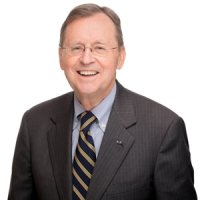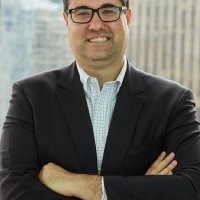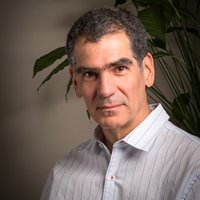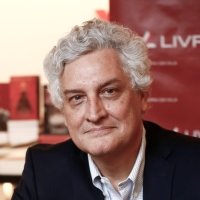A Decisive Year in Brazil: Speaker Rodrigo Maia and Experts to Address Crucial Choices Facing the Country in 2018
On January 17, President of the Brazilian Chamber of Deputies Rodrigo Maia opened a major conference on what many are calling Brazil’s most important political year since the reinstatement of democracy in the mid-1980s. Congressman Maia, part of a younger generation of politicians in Brazil, is a key actor in the stalled process of economic reforms central to the country’s ongoing recovery, after an unprecedented recession.
With the field of presidential candidates still uncertain, and the rules of the presidential and general elections still undefined, the outcome of next October’s presidential, gubernatorial, and congressional elections is impossible to predict. Illustrating the complexities of the coming political season in Latin America’s largest democracy, the two candidates currently leading in the polls—leftist former President Luiz Inácio Lula da Silva and right-wing Congressman Jair Bolsonaro—also have the highest rejection rates in a crowded field. Judicial rulings and the ongoing corruption investigations have the potential to drastically alter the race over the next ten months, starting with an appeals court ruling in late January on one of the seven cases involving corruption allegations against Lula, which could prevent the popular former president from running in October. The emergence of new voices challenging the exhausted political system could also shape the outcome in unpredictable ways.
Congressman Maia’s keynote was followed by a presentation of the latest opinion poll findings by IDEIA Big Data and a panel discussion with three accomplished scholars of Brazilian politics: Fernando Limongi, Professor of Political Science at the University of Sao Paulo; Oscar Vilhena Vieira, Dean of the FGV School of Law; and Matthew Taylor, Associate Professor of Political Science at American University.
Selected Quotes
Congressman Rodrigo Maia (original Portuguese)
“O Brasil enfrenta uma agenda de ajustes tão importante quanto difícil. Depois de uma década em que saiu da rota iniciada nos anos 80s, aos poucos começamos a retornar aos trilhos, mas os problemas acumulados são imensos.”
"Brazil faces a fiscal adjustment agenda as important as it is difficult. After a decade in which we fell off the [fiscally responsible] road started in the 1980s, we are gradually beginning to get back on track, but the problems we have accumulated are immense."
----
"Nós temos uma agenda que está colocada para este ano que é a privatização da Eletrobras, que o governo atrasou o envio devido conflitos de opinião entre os Ministérios da Fazenda e de Minas e Energia, mas parece que dia 1º de fevereiro o governo envia o projeto de lei (PL). Acho que é um tema importante e a privatização e de que forma serão alocados os recursos.”
"The privatization of Eletrobras is on the agenda for this year, although the government delayed due to conflicts between the Ministry of Finance and the Ministry of Mining and Energy. But it seems that on February 1, the government will send the bill [to Congress]. I think it's an important issue and privatization and how resources will be allocated."
----
“Eu confio muito que a sociedade brasileira vai escolher em 2018…uma agenda de reformas. Uma agenda que reorganize o estado brasileiro e que dê condições para que o setor privado, que queira investir no Brasil, de brasileiros ou não, tenha as condições necessárias e a segurança jurídica para investir no nosso Brasil.”
"I very much trust that Brazilian society will choose in 2018… a reform agenda -- an agenda that reorganizes the Brazilian state and that provides the private sector (Brazilian and foreign), which wants to invest in Brazil, with the necessary conditions and legal security to invest in our Brazil."
----
“O problema é que para alguns, o centro é uma posição entre a esquerda e a direita, acho que a política está em um ponto de mudança onde o centro não é necessariamente esse ponto entre direita e esquerda, é um ponto onde as pessoas entende a importancia do dialogo com toda sociedade.”
"The problem is that for some, the center is a position between left and right. I think politics is at a turning point where the center is not necessarily between left and right, but rather is a point where people understand the importance of dialogue with all society."
----
“A politica fiscal não deveria fazer parte de embates políticos.”
"Fiscal policy should not be part of the political battles."
----
“Acho que se a gente não tivesse tido o problema das 2 denúncias contra presidente Temer, nos teria votado a previdência, e melhor do que essa, e nos estaria num cenário hoje discutindo a reforma tributária e discutindo outros temas importantes.”
"I think that if we had not had this problem of two denunciations against President Temer, we would have already voted on social security reform, and better yet, we would be currently discussing tax reform and other important issues."
----
On running for the presidency: “Hoje não. Eu tenho 1 por cento na pesquisa. No dia que eu tiver 7 por cento, as coisas melhoram muito.”
"Today, no. I am polling at 1 percent. The day that I have 7 percent, things would be much better."
----
On Bolsa Familia and other social welfare programs: “Criar um programa para escravizar as pessoas não é um bom programa social. O programa bom é onde você inclui a pessoa e dá condições para que ela volte à sociedade e possa, com suas próprias pernas, conseguir um emprego. A cidadania é um emprego, a cidadania não é depender do Estado brasileiro.”
"Creating a program that enslaves people is not a good social program. A good program is when you include the person and enable him to return to society so that he can, with his own legs, get a job. Citizenship is a job. Citizenship is not dependent on the Brazilian State."
Introduction

Keynote Speaker

Moderator

Panelists


Professor of Political Science, University of São Paulo

Dean, Getulio Vargas Foundation Law School (FGV Direito SP)

Professor, School of International Service, American University, and former Brazil Institute Fellow
Hosted By

Brazil Institute
The Brazil Institute—the only country-specific policy institution focused on Brazil in Washington—aims to deepen understanding of Brazil’s complex landscape and strengthen relations between Brazilian and US institutions across all sectors. Read more
